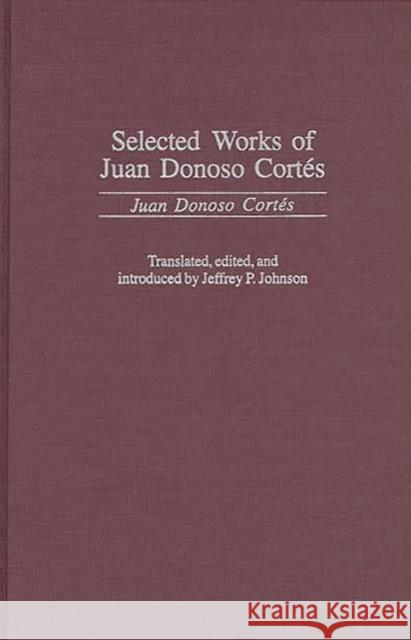Selected Works of Juan Donoso Cortés » książka
Selected Works of Juan Donoso Cortés
ISBN-13: 9780313313974 / Angielski / Twarda / 2000 / 144 str.
Growing interest in the ideas of the German legal and political theorist Carl Schmitt have sparked an interest in the thinkers and ideas that influenced him. Chief among those influences stands the 19th-century Spanish and conservative thinker Juan Donoso Cortes (1809-1853). Donoso stands in a unique place in the ideological trajectory of conservative, counter-revolutionary thought that started with the reaction of Joseph de Maistre and Louis de Bonald against the French Revolution and culminated in the rise of fascism in the early twentieth century. As the philosophical successor of de Maistre, Donoso kept de Maistre's ideas on authority and infallibility alive in the midst of the ideological and political controversies and the revolutionary tumult of Europe in the mid-19th century. Donoso's theories on infallibility played a crucial role in the definition of papal infallibility during the First Vatican Council in 1870. His theory on dictatorship changed the focus of continental conservative thought away from emphasizing the restoration of a hierarchically ordered civilization through the restoration of the monarchical ancient regime to the establishment of order and hierarchy by any necessary and effective means. This theory and his critique of parliamentarianism were especially reflected in the Franco regime in Spain and in the political and legal theories of Carl Schmitt.
All the speeches and writings of Cortes that influenced Schmitt are contained in this volume. These major theoretical works appear in English for the first time. Only the Speech on Dictatorship has appeared in English to date. Johnson's Introduction provides extensive commentary on the works and theories developed in them by showing the historical and philosophical context from which they emerged and by pointing out their significance in the development of the counter-revolutionary ideological trajectory leading from de Maistre to fascism. Until now, Donoso has been studied by a small group of mostly conservative and Catholic scholars. This translation makes his ideas more readily available for study by students and scholars of political theory.











